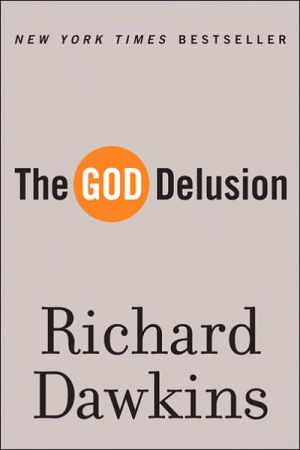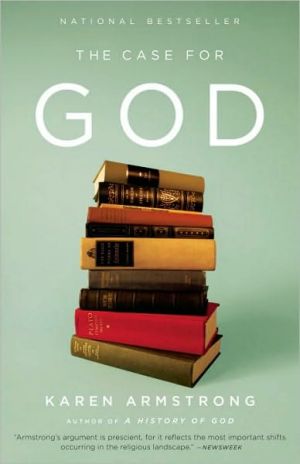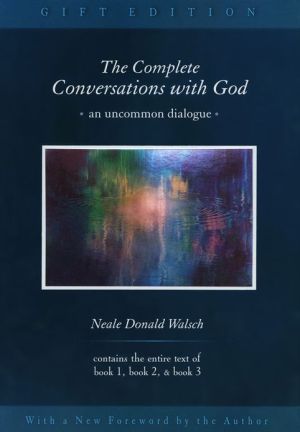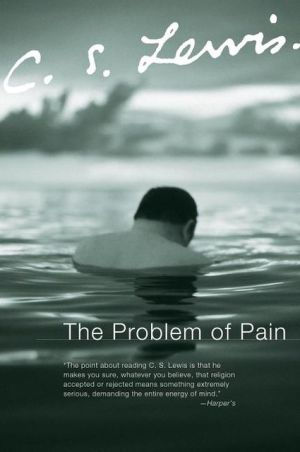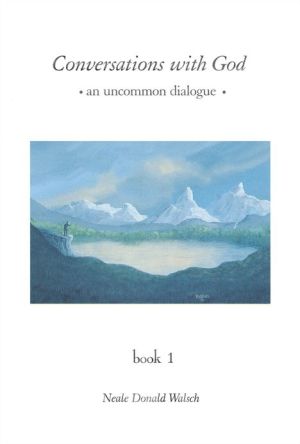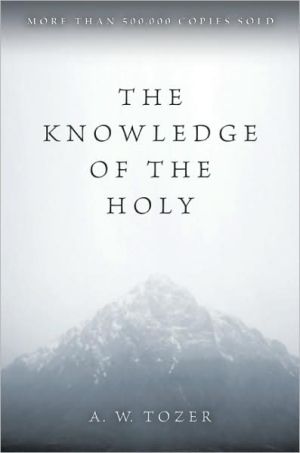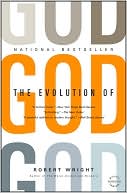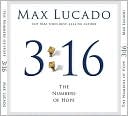Divine Foreknowledge: Four Views
The question of the nature of God's foreknowledge and how that relates to human freedom has been pondered and debated by Christian theologians at least since the time of Augustine. And the issue will not go away.\ More recently, the terms of the debate have shifted, and the issue has taken on new urgency with the theological proposal known as the openness of God. This view maintains that God's knowledge, while perfect, is limited regarding the future inasmuch as the future is "open" and not...
Search in google:
\ \ \ \ Chapter One\ \ \ The Open-Theism View\ \ \ Gregory A. Boyd\ \ \ The debate over the nature of God's foreknowledge is not primarily a debate about the scope or perfection of God's knowledge. All Christians agree that God is omniscient and therefore knows all of reality perfectly. The debate over God's foreknowledge is rather a debate over the content of reality that God perfectly knows. It has more to do with the doctrine of creation than it does with the doctrine of God.\ Although the other three views of divine foreknowledge represented in this work disagree with one another on many points, they agree that the content of reality, and therefore the content of God's infallible knowledge, is exhaustively settled. These views agree that every detail of what shall transpire in creation has been settled from all eternity. Hence God has always been as certain about the future as he is about the past. In these views God knows possibilities only as what might have been, never as what might be. He knows possibilities only as having been forever excluded from reality, never as having been included within reality. In other words, God eternally knows reality as one settled story line in contrast to all other forever-excluded story lines. This perspective may be called "the classical understanding of divine foreknowledge," though, as I've suggested, it would be technically more accurate to refer to it as the "classical understanding of creation."\ The view I shall defend agrees unequivocally with theclassical view that God is omniscient, but it embraces a different understanding of creation. It holds that the reality that God perfectly knows not only excludes some possibilities as what might have been, but also includes other possibilities as what might be. Reality, in other words, is composed of both settled and open aspects. Since God knows all of reality perfectly, this view holds that he knows the possible aspects as possible and knows the settled aspects as settled. In this view, the sovereign Creator settles whatever he wants to settle about the future, and hence he perfectly foreknows the future as settled to this extent. He leaves open whatever he wants to leave open, and hence he perfectly foreknows the future as possible to this extent. This view has recently been labeled the "openness view of God," though, as with the classical view, it would be technically more correct to refer to it as the "openness view of creation."\ Since exegesis should always drive our philosophy, instead of the other way around, and since this essay must be restricted in terms of its length, my defense of the openness view shall be almost exclusively- along exegetical lines. In part one, I shall demonstrate that while the Bible certainly celebrates God's foreknowledge and control of the future, it does not warrant the conclusion that the future is exhaustively controlled or foreknown as settled by God. In part two, I shall discuss the biblical basis of the openness view of the future by outlining six aspects of an important scriptural motif that depicts the future as partly open and as known by God as such. And in part three, I shall defend this view against five common objections.\ \ \ Part One: The Biblical Foundation of the Classical Position\ \ \ The Bible unequivocally celebrates God's foreknowledge and control of the future. The theme is found most strongly in Isaiah. At a time when many Jews were tempted to trust in pagan idols, the Lord demonstrated that he alone was the sovereign Lord of history by declaring his ability to foretell the future:\ \ \ for I am God, and there is no other;\ I am God, and there is no one like me,\ declaring the end from the beginning\ and from ancient times things not yet done....\ I have spoken, and I will bring it to pass\ I have planned, and I will do it. (Is 46:9-11)\ \ \ Two chapters later we read an even more emphatic proclamation.\ \ \ The former things I declared long ago,\ they went out from my mouth and I made them known;\ then suddenly I did them and they came to pass.\ Because I know that you are obstinate,\ and your neck is an iron sinew\ and your forehead brass,\ I declared them to you from long ago,\ before they came to pass I announced them to you,\ so that you would not say, "My idol did them,\ my carved image and my cast image commanded them." (Is 48:3-5)\ \ \ The Lord's ability to declare "from ancient times things not yet done" (Is 46:11) is demonstrated throughout Scripture. For example, the Lord predicted that the Israelites would be in captivity in Egypt for four hundred years (Gen 15:13-15). He occasionally foretold the future destruction of nations and cities, such as the city of Tyre (Ezek 26:7-21). Even more impressively, the Lord actually named several individuals before they were born and foretold some of their accomplishments (1 Kings 13:1-2; Is 45:1). Moreover, God foreknew that Christ would be crucified by wicked people (Acts 2:23; 4:27-28; 1 Pet 1:20). He also seems to have foretold a number of specific details about Christ's death: that his side would be pierced (In 19:34-37) and he would be served vinegar (Jn 19:28-29), for example. Indeed, Jesus himself knew that Judas would betray him and that Peter would deny him three times (Mt 26:34; Jn 6:64, 70-71; 13:18-19; cf. Jn 17:12).\ These passages clearly exalt God as the sovereign Lord of history. This scriptural motif reassures believers that however out of control the world may seem, the Lord is steering history toward his desired end. His overall purposes for creation cannot fail, and his eternal purpose for our lives is secure (e.g., Job 42:2; Is 14:27; Rom 8:28; Eph 1:11). This motif clearly entails that much of the future is settled ahead of time and is therefore known by God as such. Indeed, it clearly demonstrates that God can settle whatever he wants to settle about the future: "The former things I declared long ago; ... then suddenly I did them and they came to pass" (Is 48:3).\ But does this motif entail that the future is exhaustively settled and known by God as such? I would answer yes to this question if this motif constituted everything relevant to God's relationship to the future in Scripture. But as we shall see in part two, this motif hardly exhausts the relevant biblical material. In order to account for other biblical material that depicts the future as partly open, I will now show that the above biblical evidence, cited in support of the classical position, does not require the conclusion that the future is exhaustively settled.\ \ \ Declaring the end from the beginning.\ \ \ Isaiah 46:9-11. One could argue that Isaiah 46:9-11 comes closest to suggesting that the future is exhaustively settled. God describes himself as "declaring the end from the beginning and from ancient times things not yet done" (v. 10). Yet does this passage teach or imply that everything about the future is settled in God's mind? Two observations suggest that it does not.\ First, neither this nor any other passage in Scripture says that God foreknows or declares everything that is going to occur. This passage specifies that God declares "the end from the beginning" and "from ancient times things not yet done." God declares the conclusion of certain processes from their inception, and God declares certain things not yet done before they occur. But the passage doesn't teach or logically imply that everything leading up to the conclusion is declared, or foreknown, nor does it imply that God declares all things "from ancient times."\ Second, it's important to notice how the context of the passage qualifies its claims. Immediately after telling us that he declares "from ancient times things not yet done," the Lord adds, "My purpose shall stand, and I will fulfill my intention" (v. 10). This implies that the Lord is not simply declaring information about the future that he happens to possess. He knows "the end" of the process at "the beginning" and can declare aspects of the future "from ancient times" because he has predetermined this much of the future. He knows his own purpose and intention to steer history in this fashion.\ This point is emphasized when the Lord goes on to say, "I have spoken, and I will bring it to pass; I have planned, and I will do it" (v. 11). Verse 10 specifies "the end" and the "things" that the Lord declares ahead of time. It teaches us that the future is settled to the extent that the Lord has decided to settle it. But the verse does not teach or imply that the Lord will bring everything about the future to pass and, thus, that the Lord foreknows all that will come to pass. Indeed, if everything came to pass according to the Lord's will, it seems odd that he would need to overcome the Israelites' obstinacy with these assertions about particular things in the future he intends to bring about. If the Lord controlled everything, the stubbornness of the Israelites itself would be the Lord's doing.\ Isaiah 48:3-5. The same observation applies to Isaiah 48:3-5. The Lord says, "The former things I declared long ago; ... then suddenly I did them" (v. 3). The Lord does this because he did not want Israelites saying, "My idol did them" (v. 5). In other words, Yahweh proclaimed and then demonstrated his sovereign ability to bring about events as a supernatural means of confronting the lie that idols have the power to bring about events. Again, this is not simply a matter of the Lord's possessing information about what is going to take place. It is, rather, a matter of the Lord's determining what is going to take place and telling his people ahead of time. The passage does not teach or imply that the Lord determines and thus foreknows every event that shall come to pass.\ Foreknown details and the openness of creation. Given the particular examples where the Lord decrees that certain things shall come to pass, must one conclude that the future is exhaustively settled in God's mind? I shall briefly consider three examples to illustrate why I believe the answer to this question is no.\ The coherence of a partially open future. The Lord prophesied that Israel would be in captivity to Egypt for four centuries long before this captivity became a fact (Gen 15:13). This is a spectacular demonstration of the Lord's sovereign control of the future. But is it evidence that the future is exhaustively settled? Not at all. It only implies that some of the future is settled. People tend to assume that if some of the future is settled, all of it must be settled. The idea of a partially settled future strikes them as implausible, if not incoherent. This is one reason they tend to misinterpret biblical evidence of a partly settled future as evidence of an exhaustively settled future. A closer examination, however, reveals that the notion of a partly settled future perspective is both coherent and plausible.\ First, the coherence of the view that the future is partly open and partly settled is demonstrated whenever we deliberate about a decision, for in every act of deliberation we presuppose that the future is partly up to us to decide and partly decided for us. For example, suppose I am deliberating about whether or not to purchase a new edition of Kant's Critique of Pure Reason tomorrow. My act of deliberation presupposes that it lies within my power either to purchase this book or to not. It illustrates my conviction that at least this much of my future is up to me to decide. But my deliberation also presupposes that much of the future is not up to me to decide. I couldn't deliberate about this particular purchase if it were up to me to decide whether, say, the bookstore would exist or whether money would have any value tomorrow.\ In other words, to deliberate about any particular matter, we must be freed from deliberating about every matter. Our sense of freedom presupposes that much of the future is already settled. Our freedom must always take place within the parameters of things we do not choose. We have no choice but to live as though some things are up to us to resolve and some things are not. In short, we live as though the future is partly settled and partly open. The openness view of the future simply roots this "as though" in really and renders it intelligible. Of the four views considered in this book, it is the only view that can claim this.\ Second, this view of reality is being explored and confirmed in many branches of contemporary science, a fact that further confirms the coherence and plausibility of the openness view. For example, contemporary physics has demonstrated that we can accurately predict the general behavior of a group of quantum particles but that we cannot in principle predict the exact behavior of any individual particle. Indeed, the regularity, of the phenomenological world—despite quantum indeterminacy—is the manifestation of this statistical regularity. The phenomenological world is settled, though the world of quantum particles is somewhat open.\ Similarly, chaos theory has recently demonstrated that all predictable aspects of reality incorporate unpredictable aspects and vice versa. Moreover, social scientists, anthropologists and biologists have demonstrated that the behavior of groups of humans, animals and even insects is much more predictable than the behavior of the individuals. A colony of ants behaves in remarkably predictable ways, for example, even though the behavior of any particular ant is much more difficult to predict.\ Our own experience and recent scientific developments demonstrate that the view of creation as partly settled and partly open is both coherent and plausible. Hence, there should be no difficulty conceiving how God could determine and foreknow that a particular event was going to take place (e.g., the Egyptian captivity) without determining or foreknowing every detail surrounding this event (e.g., every future individual decision). The classical jump from evidence for some of the future being settled to the conclusion that all of the future must be settled is unwarranted.\ Prophecies against cities. Many of the fulfilled prophecies against nations or cities in Scripture can be explained this way. God can decree that a nation or city shall be judged without his ordaining or eternally foreknowing every future decision throughout all of history. Indeed, Scripture makes it clear that the sovereign Lord is always involved in setting the scope and duration of nations (Acts 17:26). But it doesn't teach that God determines or foreknows as settled all the decisions of all the individuals within these nations. Indeed, Paul tells us that God establishes these national parameters with the hope "that they [the nations] would search for God and perhaps grope for him and find him" (Acts 17:27). Within the parameters settled by God, there is an unsettled future, a "perhaps." God determines whatever he sees fit and leaves as much of the future open as he sees fit.\ \ \ Foreknown individuals and the openness of the future.\ The names and activity of Josiah and Cyrus. As a sign to his people, God named Josiah ("the Lord strengthens") and Cyrus and declared some of their accomplishments before they were born (1 Kings 13:1-2; Is 45:1). These decrees obviously established parameters around the parents' freedom to naming these individuals (cf. Lk 1:18-22, 59-64) and also restricted the scope of freedom these individuals could exercise regarding particular foreordained activities. But in other respects these two individuals and their parents remained self-determining agents. To conclude from these two examples that God has settled the names and activities of all people from eternity is unwarranted. These examples certainly show that Yahweh is the sovereign Lord of history, and can predetermine and thus foreknow whatever he pleases. But they do not justify the conclusion that he desires to predetermine or foreknow the whole of the future.\ Peter's denial. Future actions might also be settled not only because the Lord has decided them beforehand, but also because a person's character settles them. As we all know, character becomes more predictable over time. The longer we persist in a chosen path, the more that path becomes part of who we are. Hence, generally speaking, the range of viable options we are capable of diminishes over time. Our omniscient Creator is able to predict our behavior far more extensively than we could predict it ourselves because he knows us far better than we know ourselves (Ps 44:21; 139:1-6). This does not mean that our every move is predictable, for our present character doesn't exhaustively determine our future behavior. But it does mean that our future behavior is predictable to the extent that our present character is solidified.\ A familiar example of this is when the Lord tells Peter he will deny him three times before morning (Mt 26:34). We don't need to suppose that the future is exhaustively settled in God's mind to explain this prediction. We only need to believe that God the Father knew and revealed to Jesus one solidified aspect of Peter's character that was predictable in the immediate future. Anyone who knew Peter's character perfectly could have predicted that under certain highly pressured circumstances (which God could easily orchestrate, if he needed to), Peter would act the way he did.\ One of the central points of this divinely orchestrated lesson was exposing the superficiality of Peter's characteristic boldness. Peter had just made the (typically) proud claim to Jesus, "I will never desert you.... Even though I must die with you, I will not deny you" (Mt 26:33, 35). Jesus told him of his denial at this point in order to help Peter eventually realize just how deluded he was about his own character as well as about the character of the Messiah.\ Like most Jews of his time, Peter believed that the Messiah would be a military leader who would not suffer but rather would vanquish his enemies. This explains why Peter opposed Jesus' teaching about the need for his sacrificial suffering (e.g., Mt 16:21-23). It also explains why Peter appeared so courageous when Jesus was performing miracles but became cowardly after Jesus' arrest. His false expectations of what Jesus was going to accomplish were shattered.\ God of course saw through Peter's misplaced boldness and knew the effect Jesus' arrest would have on him. God used his knowledge to teach Peter—who would become a pillar of the church—an invaluable lesson about love and servant leadership. We do not know how much, if any, supernatural intervention was behind the events of that evening. But the outcome was just as God anticipated. Three times Peter's true character was squeezed out of him so that, after the resurrection, Christ could squeeze his character into him three times. It is no coincidence that three times the resurrected Jesus asked Peter, "Do you love me?" After each of these three refrains Jesus told Peter to feed his sheep and concluded with a prophecy that Peter would die a martyr's death, just as he had (Jn 21:15-19). Peter would never again identify leadership with military victory. For in the kingdom of God, leadership is about laying down one's life and feeding the Lord's sheep, about knowing the meaning of love (Lk 22:24-27; cf. Eph 5:25-27). It was a lesson Peter had to learn and live if he was to become everything God wanted him to be in the church and for the world.\ In any event, we are clearly going beyond the evidence if we conclude that the future is exhaustively settled from all eternity on the grounds that Jesus predicted what Peter would do in the next twelve hours. The only conclusions justified by this episode are that God possesses perfect knowledge of the past and present and that some of the future is settled, either by present circumstances (Peter's character) or by God's sovereign design.\ Judas's betrayal. Scripture says that Jesus knew "from the first" that Judas would betray him (Jn 6:64). This phrase (ex arche) does not imply that Jesus knew who would betray him from a time before the person decided, in his heart, to betray him (let alone that he knew from all eternity, as the classical view of foreknowledge requires). It can more plausibly be taken to mean that Jesus knew who would betray him early on (cf. Phil 4:15), either from the moment this person resolved it in his heart to betray him or from the time Jesus chose him to be a disciple.\ Jesus tells us that Judas fulfilled Scripture, not that Judas was the individual who had to fulfill Scripture. Judas could have and should have chosen a different path for his life than the one he chose. But, as a free moral agent, Judas tragically chose a path of self-interest and ultimately self-destruction (Jn 17:12). If his choices had been more godly, he would not have been a candidate for fulfilling the prophecy of the Lord's betrayal. In this case the Lord would have found someone else to fill this role.\ In my view, this is how we should understand the wicked activity of all the individuals who played foreordained roles in the death of Jesus: for example, the rulers who had Jesus crucified (Acts 2:23; 4:27-28), the soldier who pierced his side (Jn 19:34-37) and the soldier who gave Jesus vinegar (Jn 19:28-29). As seen in its references to Judas, Scripture never suggests that these specific individuals were destined or foreknown to carry out these wicked deeds. It only teaches that these specific deeds were destined and foreknown to take place. Saying that someone carried out a predestined or foreknown wicked event is much different from saying that someone was predestined or foreknown to carry out a wicked event. Scripture affirms the former but not the latter. These passages only require us to believe that, when he so chooses, God can narrow the parameters within which certain people act out their freely chosen character.\ Again, we are outrunning the evidence if we conclude that everything about creation is eternally and exhaustively settled based on these examples. We might be justified in going beyond the evidence in this fashion if this were all the evidence we had. If we did not have any scriptural evidence of the future's being open at least in part, then we could perhaps justifiably argue that the above evidence—which suggests that some of the future is settled—supports the conclusion that the future is exhaustively settled. As we shall now see, however, this is not at all the case.\ \ \ Part Two: Scripture and the Openness of Creation\ Alongside the scriptural motif that celebrates God's control and knowledge of the settled aspects of creation is another, rarely appreciated motif that celebrates God's creative flexibility in responding to open aspects of his creation. In this motif, God asks questions about the future, speaks of the future in conditional terms, regrets the outcome of decisions he has made, changes his mind in response to changing situations, and so on. I call this "the motif of future openness," and it pervades Scripture at least as thoroughly as the first motif, as I shall briefly demonstrate.\ (Continues...)\ \ \ Excerpted from Divine Foreknowledge by James K. Beilby & Paul R. Eddy, with contributions by Gregory A. Boyd, David Hunt, William Lane Craig, Paul Helm. Copyright © 2001 by James K. Beilby, Paul R. Eddy, Gregory A. Boyd, William Lane Craig, Paul Helm & David Hunt. Excerpted by permission.
Introduction91The Open-Theism View132The Simple-Foreknowledge View653The Middle-Knowledge View1194The Augustinian-Calvinist View161Glossary207Subject Index215Scripture Index219
\ Publishers WeeklyThe recent evangelical debate about divine foreknowledge has been compared to the inerrancy debate of the 1970s because of its heatedness; this collection attempts to offer several viewpoints on the basic controversies (i.e., what did God know, when did he know it and do human beings really have free will?). But in bringing together these four authors Gregory Boyd with the open view, David Hunt with the simple-foreknowledge view, William Lane Craig with the middle-foreknowledge view and Paul Helm defending the Augustinian-Calvinist view the collection illustrates another similarity with the inerrancy debate: a mind-numbing complexity of argument. The editors have sought "to make this book accessible to educated laypeople and college students who have had a first course in theology or philosophy." While Boyd's essay is very accessible, the others are filled with technical terms ("while it seems clear that intramundane causation is transitive") and a puzzling tendency to speak in algebraic variables ("If it is accidentally necessary before X is even born that X will do A, then X never has it in his power to do other than A..."). Needing over seven pages of glossary, this book is unlikely to find a wide audience, but it will still prove useful for those seminarians and clergy who wish to get several different perspectives on the debate. (Nov.) Copyright 2001 Cahners Business Information.\ \

